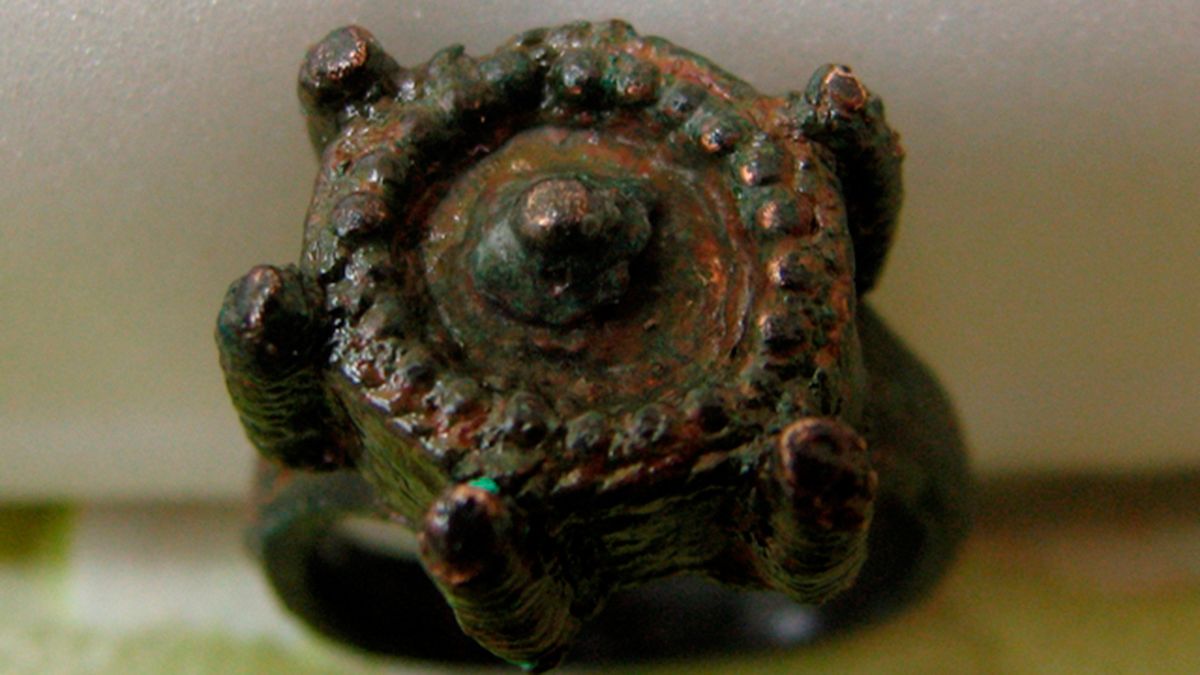Bulgarian archaeologists digging at the site of a former medieval fortress on the Bulgarian Black Sea coast claim to have found a well-preserved poison ring.
The find, at Cape Kaliakra near the town of Kavarna, is the first of its kind in Bulgaria, according to the head of the dig and deputy director of the National Archaeology Institute and Museum in Sofia, Boni Petrunova.
The bronze ring has a small compartment embedded in the bezel, the part of a ring that holds jewels but could also conceal substances such as poison, which could be dropped into a foe’s food or drink.
The ring was probably worn by a male, most likely on the little finger, Petrunova said. It was discovered in an area that housed the local aristocracy and where more than 30 items of jewellery have been found since 2011.
“I have no doubts that the hole is there on purpose and the ring was worn on the right hand, because the hole was made in such a way so as to be covered by a finger, so that the poison can be dropped at a moment’s notice. Clearly, it was not worn constantly and would have been put on when necessary,” Petrunova said.
The find could be proof that poison was used for murder, likely politically-motivated, during that period of Bulgarian history.
The ring was possibly used in the conflict between Dobrotitsa, ruler of the independent Despotate of Dobrudja in the second half of the 14th century, and his son Ivanko Terter, Petrunova said.
Kaliakra was the capital of the short-lived principality that stretched from the Danube River delta to present-day Bourgas.
At the peak of his rule, Dobrotitsa is said to have possessed armies capable of playing a role in Byzantine civil wars and, along with allies from the Republic of Venice, challenge Genovese naval domination in the Black Sea.
Dobrudja came under Ottoman control in the early 15th century and was officially occupied after the 1444 Battle of Varna, when Ottoman Sultan Murad II defeated Hunagrian and Polish crusader forces.
Source: Sofia Globe
